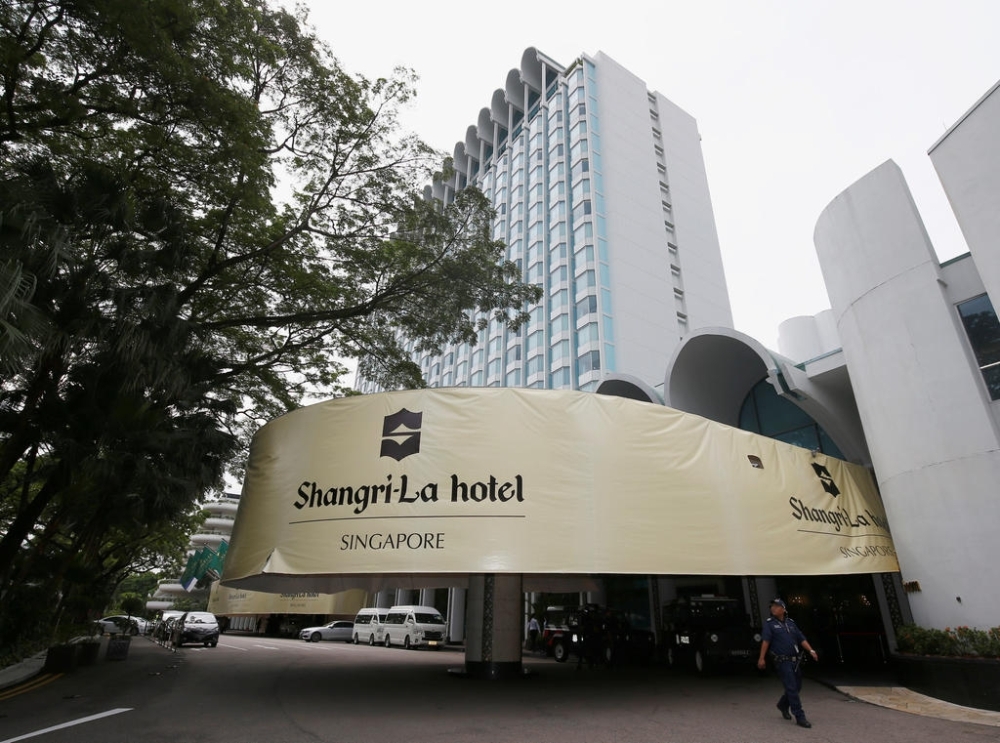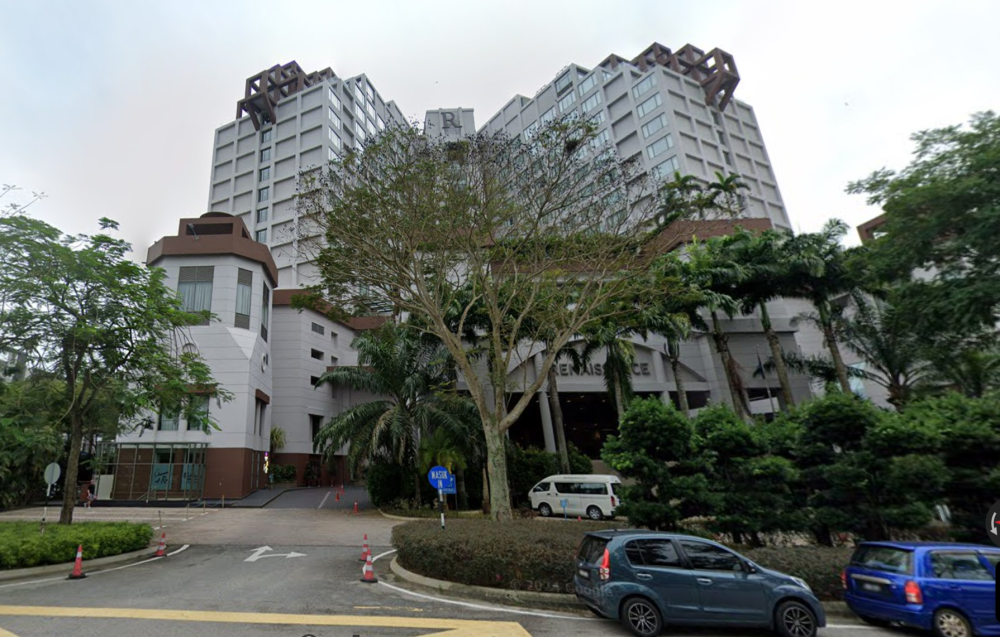Trained in JB, poached by Singapore: Hoteliers sweat staff shortage ahead of Visit Johor Year
By Ben TanTuesday, 22 Oct 2024 7:00 AM MYT

A file photograph shows the Shangri-la Hotel in Singapore on June 1, 2018. ― Reuters pi
JOHOR BARU, Oct 22 — Hotels here are struggling to retain workers who are joining Singapore’s hospitality sector due to the republic’s stronger currency, which could undermine the Visit Johor Year 2026.
Hoteliers said the staff shortage, which has been acute and growing since the Covid-19 pandemic, would make it challenging to cater to the 12 million domestic and international visitors that state officials are aiming to welcome that year.
Amari Hotel Johor Baru marketing communications manager Salamon Muzafa Das said the problem has existed for as long as the Singapore dollar has outpaced the ringgit, but has become worrisome as the exchange rate was so high now.
The Singapore reached an all-time high of 3.57 to the ringgit this year, but the Malaysian currency has clawed back some ground in recent months.
“At present, this has grown to a problem where it seems that Johor hotels are just training our hospitality staff for the Singapore market,” he said when contacted by Malay Mail.
Salomon said the issue was particularly bad for five-star hotels who have to train their staff in order to deliver the guest experience expected of them.
In Johor, pay for newly-trained staff is generally RM1,500 a month, currently Malaysia’s minimum wage; the new rate of RM1,700 announced during Budget 2025 last Friday is only effective from February 1 next year.
In Singapore, hotel workers would earn the same figure, but in dollars that would convert to nearly RM5,000 back home.
“These staff are highly valued by Singapore hotels as they are already highly trained and have a specific skill set,” said Salamon.
Perennial problem
According to former hotelier Shaiful Azman, the problem had previously been restricted to budget and three-star hotels in the 2000s, but has slowly made its way up the chain.
The former assistant director of the Suria Hotel Group, who resigned two years ago, said retaining staff on the minimum wage was difficult even before the pandemic.
However, he said it was not just Singapore’s hospitality sector that was the issue, but the jobs in the republic as a whole.
“For them, it’s not about career development but more about the money, so they are attracted to working in fast food outlets or even menial labour jobs in factories or construction,” he said.
Shaiful then said the problem was becoming more pressing as some hotels were even facing staff shortages in front-of-house departments including the reception.
Malaysians were also choosing to work in Singapore despite knowing they would be paid less than the locals and face glass ceilings, he said.
“I have friends working in Singapore hotels for more than five years. In a way, they know that they won’t make it to senior management positions and will usually only reach supervisory level,” he said.

Despite the bleak outlook, some Johor Baru hotels have managed to stopped their employees from answering the siren call of the Singapore dollar.
Among them is Renaissance Johor Baru Hotel, where a cross-exposure programme has been credited with improving staff retention by offering them personal and career development options.
The hotel’s marketing and communications senior manager Hezrin Ali told Malay Mail he believed the programme has helped to mitigate the problem.
Under the programme, employees at the the Marriott International group hotel can request to transfer to a different department, depending on eligibility and availability, to improve their learning of the business.
Hezrin said staff could also ask for transfers between hotels in the same group, for instance from Renaissance Johor Baru Hotel to the Westin Desaru Coast Resort.
“I am not saying Renaissance Johor Baru Hotel is immune to staff leaving for Singapore hotels, but the problem does not affect our manpower (levels).
“I believe that we manage to retain our staff due to opportunities such as the cross exposure programme,” he said.
What is the solution?
Malaysian Association of Hotels (MAH) Johor Chapter secretary Yvonne Loh said the problem most affected Johor Baru or south Johor hotels due to the proximity to the republic, which made a daily work commute possible.
Loh said the problem must be addressed urgently with Visit Johor Year 2026 just a little over a year away.
She agreed that cross-exposure programmes could alleviate the problem partially, but said this was not an option for the whole industry.
Instead, she said MAH Johor introduced the Hotel Awesome Service Award this year, which is among the first few in the country.
The award is to inspire quality service among hotel employees by recognising and celebrating outstanding service provided to customers, Loh explained.
“We hope that the annual award can be used as a staff recognition in their job applications by our member hotels.
“In a way, it is similar to a cross exposure programme among member hotels under MAH Johor chapter to discourage local hotel talent from seeking employment in Singapore,” she said.
For MAH Johor chapter chairman Ivan Teo, the issue was down to the state’s hotels not being able to afford the pay, perks, and career advancements needed to compete for staff with Singaporean rivals.
He told Malay Mail that one major barrier to this was the competition from unregulated home stays such as Airbnb, which forced hotels to compete heavily on pricing.
Although acknowledging that occupancy rates could be high at some city hotels, he said this was limited to weekends and holidays.
“For us, our room rates are way below market price,” he said.
Without the competition from unregulated home stays, Teo suggested that Johor hotels would be able to raise their room rates to appropriate levels and afford competitive staff salaries.
“Like Singapore where Airbnb is regulated, it will be a great start for the local hotels to move up to a higher standard,” he said.
